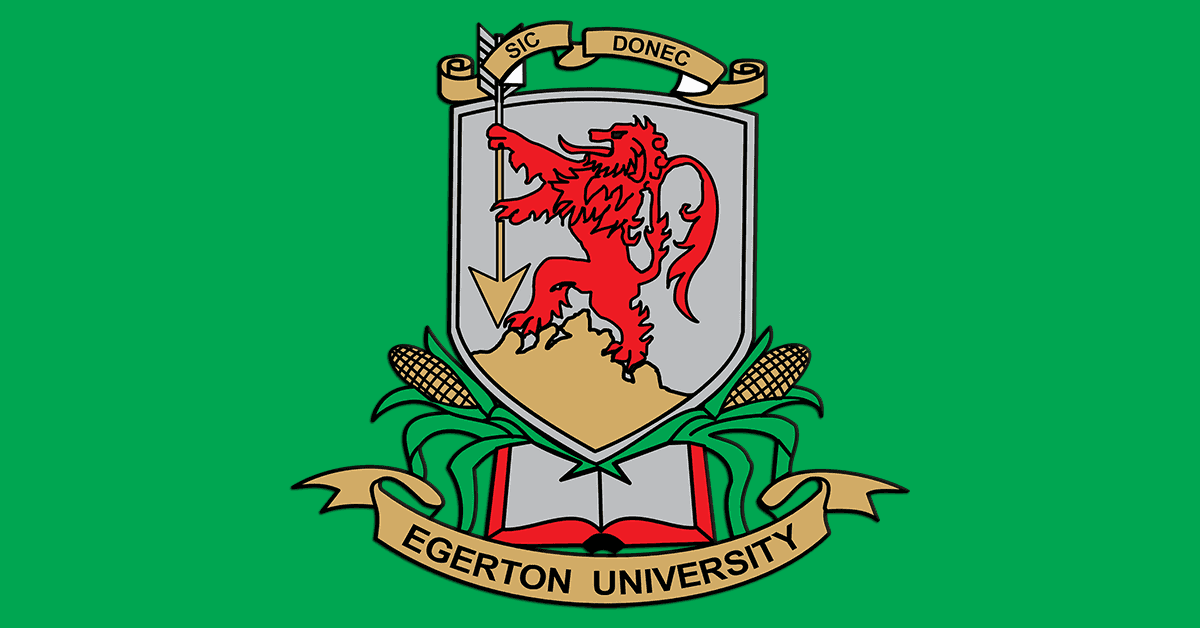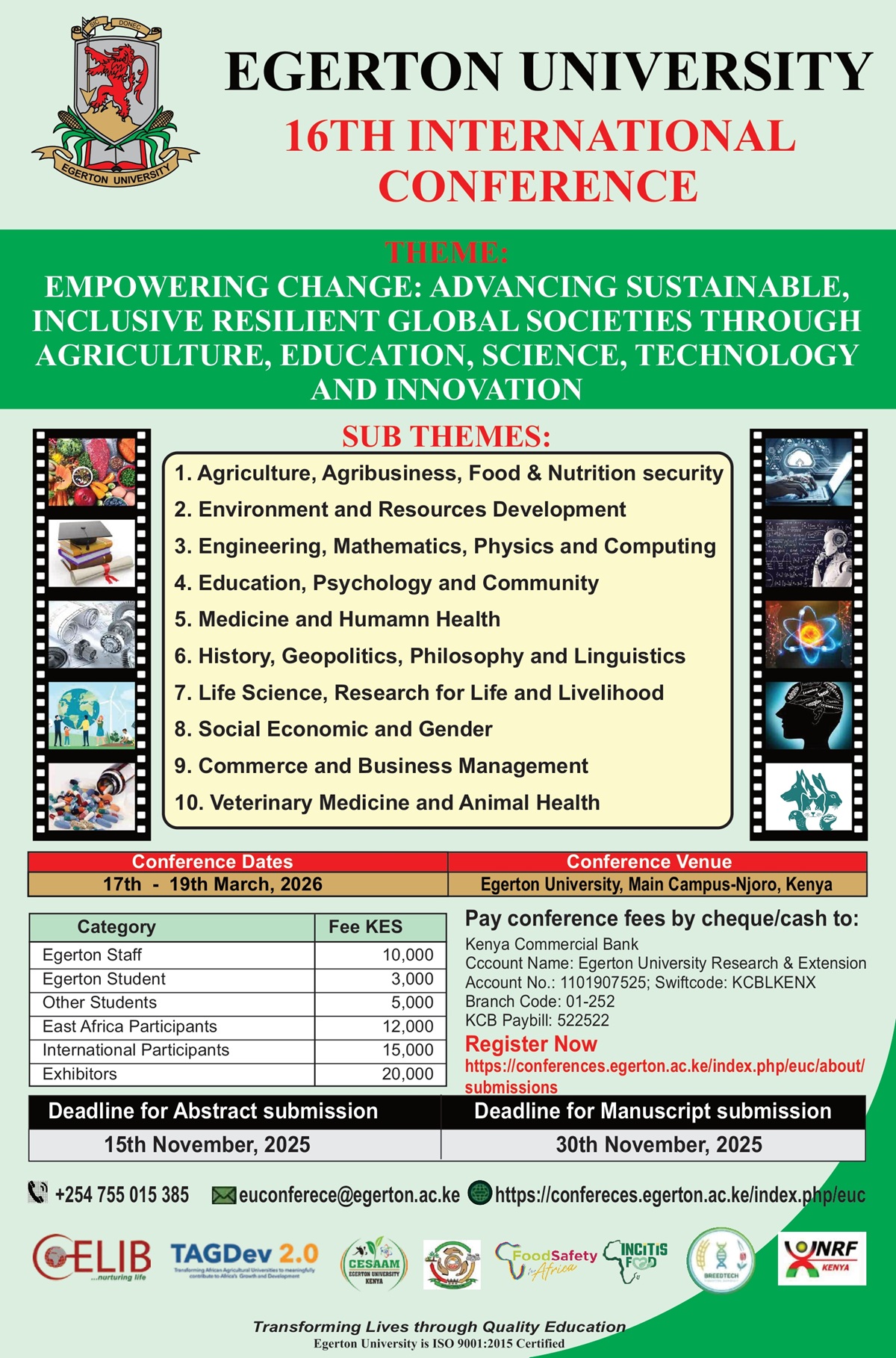UNESCO - Regional Bioethics Centre
Egerton University hosts a UNESCO Chair in Bioethics and UNESCO Regional Documentation Centre
Mission statement
To contribute to UNESCO Mission/strategy and Egerton University vision through promoting bioethics across core mandate areas as a catalyst for peaceful coexistence and sustainable development for advancement of humanity
About UNESCO Chair in Bioethics at Egerton University
UNESCO Chair at Egerton University was established in 1998 after a successfully applied for the Chair in Bioethics within the UNESCO UNITWIN programme.
The Chair focuses on bbioethics and is guided by the following objectives.
- To promote an integrated system of research, training, information and documentation activities in the field of bioethics.
- To set up progressively an intra- and interregional network of research in bioethics, the collating of information on bioethics issues related to contemporary research projects.
- To establish a rapid and systematic mechanism for the transfer of knowledge and information
The chair works closely with the UNESCO Office in Paris and Nairobi and the Kenya National Commission as well as other partners in the region. UNESCO Chair in Bioethics is part of a larger network of UNESCO Chairs https://en.unesco.org/themes/higher-education/unitwin
History of the UNESCO Chair at Egerton University
Since its inception the chair has been steered by the following members of staff from Egerton University working with a team of staff from various departments.
- 1998-2004 :Dr Kimani Njoroge
- 2004-2008: Prof. Jude Mathooko
- 2008-2019: Prof Julius Kipkemboi
- 2022 : Dr, David Nderitu
About UNESCO Regional Bioethics Centre
The UNESCO Regional Centre for Documentation and Research in Bioethics (Bioethics Centre) is located in Egerton University https://www.egerton.ac.ke/ Njoro Campus on Tanzania Road (BH36). The resolutions to establish the centre were presented by the Kenyan Delegation and adopted during the 33rd session of the General Conference in Paris in October, 2005. These resolutions were as follows:
- To establish a resource centre in Africa to facilitate exchanges between policy makers, scholars, civil society and other interested parties on ethical, legal and social concerns stemming from advances in the life sciences, especially in bioethics with particular interest to African and other developing regions, share information on international instruments development challenges and priorities and the ways and means of developing and implementing national policy frameworks in the field of bioethics.
- To promote research and undertake ethics education activities-both in the area of bioethics and ethics of science and technology - in particular in training and education of future scientists and among policymakers and professionals.
Mandate of the UNESCO Bioethics Centre
- To promote an integrated research in bioethics
- To create a platform for networking and information sharing among institutions of higher learning on bioethical issues
- To create a regional database on bioethics research and policy
- To contribute to education and capacity building through training, research and documentation in the field of bioethics
- To collaborate with other institutes with similar focus.
- To initiate and contribute to public debate on bioethical issues.









